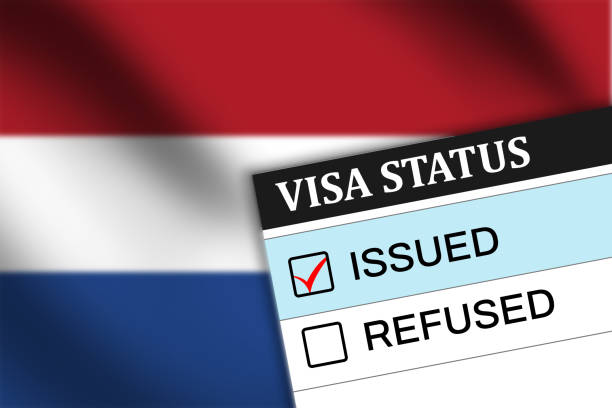Study Abroad
Teacher Professional Development in Europe
Teacher Professional Development in Europe: Enhancing Education through Continuous Learning
Teacher professional development (TPD) is crucial for maintaining and improving educational standards. In Europe, there is a strong emphasis on providing educators with opportunities for continuous professional growth. This comprehensive guide explores the various facets of teacher professional development in Europe, highlighting programs, strategies, and resources available to educators.
Table of Contents
- Introduction to Teacher Professional Development
- Importance of Teacher Professional Development
- Key Areas of Focus in European TPD
- Models of Professional Development
- Notable TPD Programs and Initiatives in Europe
- Country-Specific TPD Practices
- Finland
- Germany
- United Kingdom
- France
- Sweden
- Netherlands
- Challenges and Solutions in TPD
- Future Trends in Teacher Professional Development
- Conclusion
- Additional Resources
1. Introduction to Teacher Professional Development
Teacher professional development refers to the ongoing education and training that teachers undergo to enhance their teaching skills, knowledge, and effectiveness. It includes a wide range of activities, from formal courses and workshops to informal learning and collaboration among peers.
2. Importance of Teacher Professional Development
TPD is essential for several reasons:
- Improving Teaching Skills: Regular training helps teachers stay updated with new teaching methodologies and technologies.
- Student Achievement: Effective TPD directly impacts student learning outcomes and achievement.
- Career Advancement: Continuous learning opportunities help teachers advance in their careers.
- Adaptation to Change: TPD helps teachers adapt to educational reforms and changing classroom dynamics.
European University Scholarships
3. Key Areas of Focus in European TPD
European TPD programs often focus on the following areas:
- Pedagogical Skills: Enhancing teaching strategies and classroom management.
- Subject Knowledge: Deepening understanding of specific subjects.
- Digital Competence: Integrating technology into teaching.
- Inclusive Education: Addressing the needs of diverse learners.
- Leadership Skills: Preparing teachers for leadership roles within schools.
4. Models of Professional Development
There are various models of TPD, including:
- Workshops and Seminars: Short-term training sessions focusing on specific topics.
- Online Courses and Webinars: Flexible learning opportunities that can be accessed remotely.
- Professional Learning Communities (PLCs): Groups of educators who meet regularly to share experiences and strategies.
- Mentoring and Coaching: Experienced teachers providing guidance and support to less experienced colleagues.
- Action Research: Teachers conducting research to solve classroom challenges and improve practices.
5. Notable TPD Programs and Initiatives in Europe
Several notable TPD programs and initiatives are available across Europe:
Erasmus+ Program
Description: Erasmus+ is a European Union program that supports education, training, youth, and sport in Europe. It offers opportunities for teachers to participate in professional development courses and exchange programs.
- Link: Erasmus+
European Schoolnet Academy
Description: European Schoolnet Academy provides free online courses for teachers on a variety of topics, including STEM education, digital skills, and innovative teaching practices.
eTwinning
Description: eTwinning is a European platform that encourages schools to collaborate online on educational projects. It offers professional development opportunities through workshops, webinars, and online courses.
- Link: eTwinning
Teacher Academy by School Education Gateway
Description: Teacher Academy offers free online courses and resources for teachers to enhance their professional skills. Topics include language teaching, digital education, and inclusive education.
- Link: Teacher Academy
6. Country-Specific TPD Practices
6.1 Finland
Focus: Finland emphasizes collaborative learning and continuous professional development. Teachers engage in regular in-service training and participate in research projects.
6.2 Germany
Focus: In Germany, professional development is decentralized, with each federal state responsible for its programs. TPD often includes subject-specific training and pedagogical skills development.
6.3 United Kingdom
Focus: The UK offers a range of TPD programs through organizations like the National College for Teaching and Leadership (NCTL) and the Chartered College of Teaching. Focus areas include leadership, subject knowledge, and classroom management.
6.4 France
Focus: In France, TPD is coordinated by the Ministry of National Education and includes a mix of in-service training, online courses, and collaborative projects.
6.5 Sweden
Focus: Sweden places a strong emphasis on research-based professional development. Teachers participate in both mandatory and voluntary training programs throughout their careers.
6.6 Netherlands
Focus: Dutch TPD focuses on lifelong learning, with opportunities for teachers to pursue advanced degrees and participate in professional learning communities.
- Link: Nuffic
7. Challenges and Solutions in TPD
Challenges:
- Time Constraints: Teachers often struggle to find time for professional development amidst their teaching responsibilities.
- Funding: Limited financial resources can restrict access to high-quality TPD programs.
- Relevance: Ensuring that TPD programs are relevant and tailored to teachers’ needs can be challenging.
Online Courses in Artificial Intelligence
Solutions:
- Flexible Learning Options: Online courses and blended learning models provide flexibility for busy teachers.
- Government Support: Increased funding and support from governments can enhance access to TPD.
- Teacher Involvement: Involving teachers in the design and evaluation of TPD programs ensures they are relevant and effective.
8. Future Trends in Teacher Professional Development
- Digital Learning: Increased use of online platforms and digital tools for TPD.
- Personalized Learning: Tailoring TPD programs to individual teacher needs and preferences.
- Collaborative Learning: Emphasizing peer collaboration and sharing of best practices.
- Sustainability: Integrating sustainable practices and environmental education into TPD.
9. Conclusion
Teacher professional development is a cornerstone of high-quality education. In Europe, a wide array of programs and initiatives support the continuous growth of educators. By embracing lifelong learning and leveraging available resources, teachers can enhance their skills, improve student outcomes, and contribute to the advancement of the educational system.
10. Additional Resources
- Eurydice Network: eurydice.eacea.ec.europa.eu
- OECD Teacher and Learning International Survey (TALIS): oecd.org
- European Commission – Education and Training: ec.europa.eu
Investing in teacher professional development is investing in the future of education. By supporting teachers in their continuous learning journey, we ensure that students receive the highest quality education possible, paving the way for a brighter future for all.











Pingback: Bachelors / Masters / PhD In USA For International Students Scholarships – DsibileHub